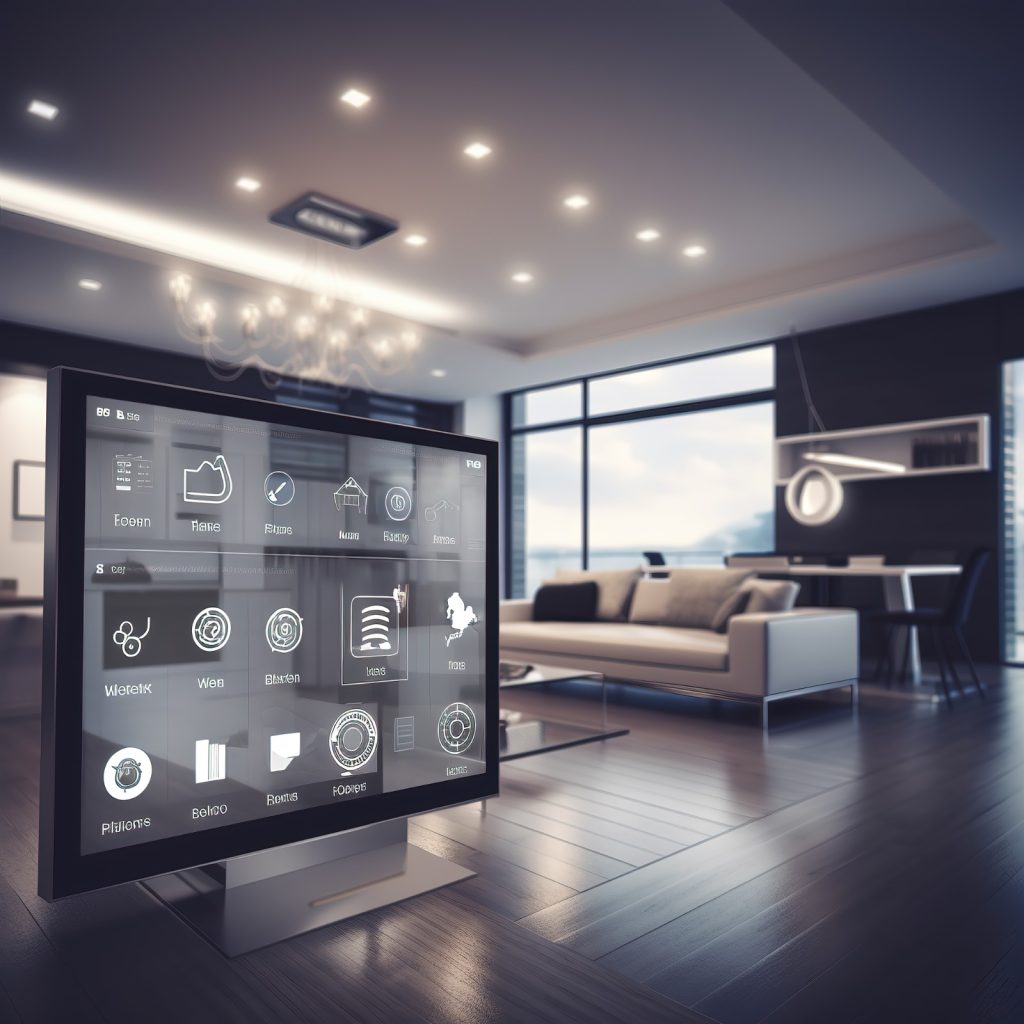The Benefits and Considerations of Smart Home

Because of the rapid growth of technology, our homes are becoming increasingly sophisticated. Smart homes, which are outfitted with networked devices and automation systems, have grown in popularity due to their ability to improve convenience, efficiency, and security in our daily lives. In this blog, we will look at the numerous advantages of smart homes as well as the crucial concerns to keep in mind before completely embracing this futuristic lifestyle.
1. Convenience and Comfort
.The unmatched convenience that smart homes offer is among its most important advantages. With a few taps on your smartphone or a straightforward voice command, you may regulate a lot of aspects of your home environment. Smart home technology enables easy administration of your living space, from altering the temperature and lighting to remotely running appliances. Consider returning home to a properly illuminated and climate-controlled environment customized to your preferences—a really pleasant experience.
2. Energy Efficiency
Smart homes are meant to optimize energy use, resulting in significant long-term cost savings. Connected thermostats may remember your patterns and adjust the temperature automatically, saving energy while you’re gone and ensuring comfort when you return. Smart lighting systems, on the other hand, employ sensors to detect occupancy and change brightness accordingly, reducing energy waste. Furthermore, appliance automation and monitoring systems promote energy efficiency, lowering power bills and boosting sustainability.
3. Improved Security and Safety
Homeowners prioritize safety, and smart homes give a variety of security features that provide peace of mind. Real-time monitoring and notifications for break-ins, fires, and other crises are provided by smart security systems, allowing homeowners to take prompt action or inform authorities. Surveillance cameras, which can be accessed via smartphones, allow for remote monitoring of your home, discouraging possible burglars. Smart locks and doorbell cameras also improve control and offer secure access management.
4. Interconnection and Integration
A smart home ecosystem’s seamless integration of gadgets is a game changer. You can easily connect and control multiple devices using a centralized hub or a voice-controlled assistant, such as Amazon Alexa or Google Assistant. These interconnected networks streamline daily activities, from smart speakers and entertainment systems to kitchen appliances and home automation systems. For example, you can program routines to lower the lights, play soothing music, and adjust the thermostat to create the ideal ambiance for rest.
5. Increased Property Value
Installing smart home technologies in your property can dramatically boost its value if you ever decide to sell it. This is because buyers are continuously searching for houses with modern amenities, which increases their attraction to buyers and boosts the sale price of the property
6. Health and Wellness
Smart home appliances can monitor air quality and humidity levels, helping you create a healthier living space. Furthermore, connected devices like fitness trackers and smart scales can interact effortlessly with your home network, delivering real-time health data and personalized feedback.
Considerations
While the advantages of smart homes are alluring, there are some concerns to take into account before fully adopting this modern marvel.
1. Data Privacy and Security
The amount of personal data created by a smart home develops in tandem with the number of interconnected devices. Privacy and data security must be prioritized by homeowners. Selecting trusted brands, as well as assuring strong encryption and password protection, are critical measures in protecting personal information from potential intrusions.
2. Initial Investment and Compatibility
Depending on the extent and complexity of the intended features, implementing a smart home system can incur large upfront costs. It is critical to assess your budget and identify which components of smart home technology correspond to your needs and priorities. Researching and selecting compatible devices might assist to avoid frustration and ensure a smooth experience.
3. Dependence on Internet Access
Smart homes rely significantly on a reliable internet connection to work properly. Interruptions or sluggish internet rates might impair smart device functionality and response. To reduce any disruptions, it is critical to have a dependable internet service provider and to explore backup options such as cellphone data or a secondary internet connection.
4. Technical Assistance
Transitioning to a smart home necessitates some technical knowledge as well as familiarity with the devices and their accompanying apps or interfaces. It may take some time to completely grasp and customize the options to your liking.
Conclusion
Numerous benefits come with smart homes, from convenience and energy savings to greater safety and wellness. They deliver a unique living experience due to their seamless integration and connection. However, it is critical to carefully examine privacy and security concerns, device cost and compatibility, dependency on stable internet connectivity, and the learning curve associated with smart home technologies. By balancing these factors and making informed decisions, you can design a smart home that improves your lifestyle while also providing a safe and efficient living environment. Accept the future and unleash the power of smart homes!
Get in touch
Connect with Growin Estate for Exclusive and Verified Leads
Trademark Disclaimer: All third-party trademarks, including logos and icons, mentioned on this website are the sole property of their respective owners. Unless explicitly stated, the use of these trademarks by Growinestate does not imply any association, sponsorship, or endorsement between Growinestate and the owners of these trademarks. Any references made by Growinestate to third-party trademarks are solely for the purpose of identifying the relevant third-party services, and such usage is considered nominative fair use under trademark law.

